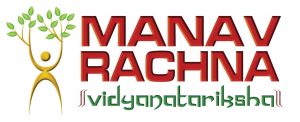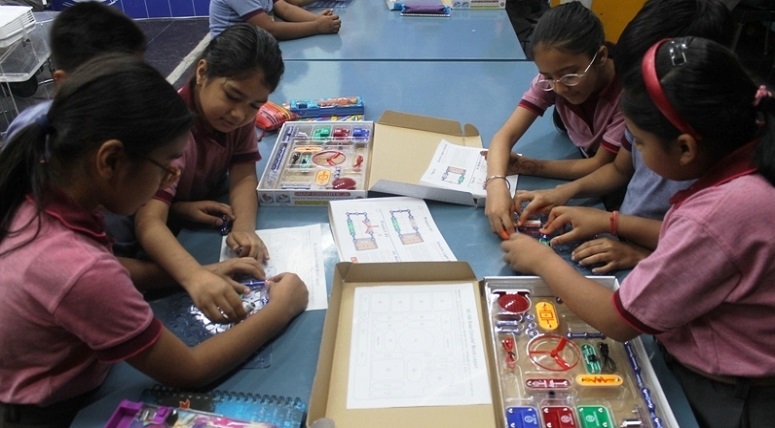“Learning is experience. Everything else is just information.” – Albert Einstein
To begin with, here’s a simple question for you to answer: Assuming that you do not know how to drive, would you like to learn how to drive using an instruction manual that explains to you the nitty-gritty of driving, or rather have an instructor who guides you through with a hands-on learning experience? I am certain, you would choose the latter. Why then, do we think that children would learn any other way?
Children are explorers by nature; they love to observe and discover. We, at Manav Rachna International Schools, understand this and therefore, experiential learning forms the basis of all teaching-learning experiences at our school, particularly in the Early Years. Experiential learning is not just limited to hands-on learning, but rather goes a step further to reflection. Learning by doing and reflection provides children with the opportunity to explore, discover, think, make choices as well as decisions… even errors, apply and reflect. Over a period of time, it helps to develop the skills required for a 21st-century learner.
The classroom setting is a place where all the senses of students are engaged and stimulated through multifarious activities and learning resources that help in providing an enriching learning experience. Linking learning to real life makes it more relatable, thereby leading to longer retention as opposed to rote memorization. Social skills such as collaboration and team-work also develop as part of the process.
Experiential learning helps increase the effectiveness of learning. Learners engage in decision making and acquire problem-solving skills. As students engage in experiential tasks, they may realize that some approaches work better than others; if something does not work, they are encouraged to try out another way of achieving it, which actually makes the entire process extremely valuable. They also understand that they may achieve the same outcome by various ways, instead of just one. Students learn to value mistakes, rather than fearing them. The process, therefore, becomes more significant than the product.
Providing opportunities for experiential learning helps create a win-win situation for all…the students, teachers as well as parents. As Benjamin Franklin had said “Tell me and I forget. Teach me and I remember. Involve me and I learn.”
Written By:- Ms. Nandini Awasty, Headmistress – Early Years, MRIS 21C, Faridabad





